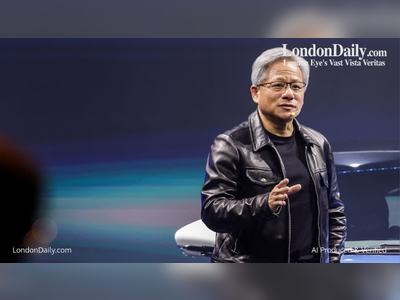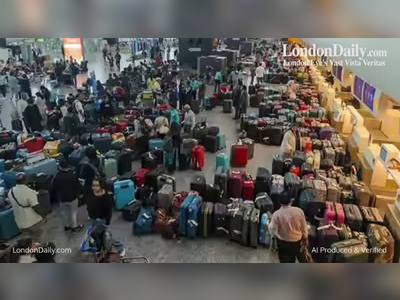El Salvador's Golden Opportunity: A Trillion-Dollar Question
President Nayib Bukele's announcement of vast untapped mineral wealth in El Salvador presents a transformative economic potential, intertwined with significant environmental and geopolitical stakes.
In a stunning revelation, President Nayib Bukele of El Salvador has announced the discovery of mineral reserves in his country, estimated to be worth up to three trillion dollars.
This treasure trove is not limited to gold; it includes critical minerals like gallium and tantalum, which are essential for the technological advancements driving the fourth and fifth industrial revolutions.
The potential economic benefits are immense, promising to catapult El Salvador into a new era of prosperity, potentially creating thousands of jobs and significantly reducing national debt.
However, this boon is not without its burdens.
The environmental risks associated with large-scale mining operations are considerable.
Such activities could lead to severe ecological disruptions—deforestation, water pollution, and habitat destruction are common consequences of mining booms.
Critics argue that the long-term environmental costs could outweigh immediate economic gains, citing devastated landscapes in other mining-heavy regions like the Amazon and parts of Africa.
Yet, the government contends that the wealth generated from these minerals could provide the necessary funds to address pressing national concerns, including improving water quality and combating gang violence.
The narrative suggests a strategy of using the nation's subterranean riches to heal its above-ground wounds.
On the geopolitical front, the presence of such valuable resources could indeed reposition El Salvador on the world stage, attracting foreign investment but also potentially making it a target for international exploitation.
Ensuring that the benefits of mining accrue to the Salvadoran people will require careful navigation of foreign relations and robust regulatory frameworks.
The debate is thus not merely about the feasibility of mining but about how El Salvador can leverage this opportunity responsibly without sacrificing its environmental integrity or political autonomy.
As the country stands on the precipice of this golden opportunity, the global community watches closely, hoping that El Salvador's fortunes will not come at an unsustainable cost.
This treasure trove is not limited to gold; it includes critical minerals like gallium and tantalum, which are essential for the technological advancements driving the fourth and fifth industrial revolutions.
The potential economic benefits are immense, promising to catapult El Salvador into a new era of prosperity, potentially creating thousands of jobs and significantly reducing national debt.
However, this boon is not without its burdens.
The environmental risks associated with large-scale mining operations are considerable.
Such activities could lead to severe ecological disruptions—deforestation, water pollution, and habitat destruction are common consequences of mining booms.
Critics argue that the long-term environmental costs could outweigh immediate economic gains, citing devastated landscapes in other mining-heavy regions like the Amazon and parts of Africa.
Yet, the government contends that the wealth generated from these minerals could provide the necessary funds to address pressing national concerns, including improving water quality and combating gang violence.
The narrative suggests a strategy of using the nation's subterranean riches to heal its above-ground wounds.
On the geopolitical front, the presence of such valuable resources could indeed reposition El Salvador on the world stage, attracting foreign investment but also potentially making it a target for international exploitation.
Ensuring that the benefits of mining accrue to the Salvadoran people will require careful navigation of foreign relations and robust regulatory frameworks.
The debate is thus not merely about the feasibility of mining but about how El Salvador can leverage this opportunity responsibly without sacrificing its environmental integrity or political autonomy.
As the country stands on the precipice of this golden opportunity, the global community watches closely, hoping that El Salvador's fortunes will not come at an unsustainable cost.










